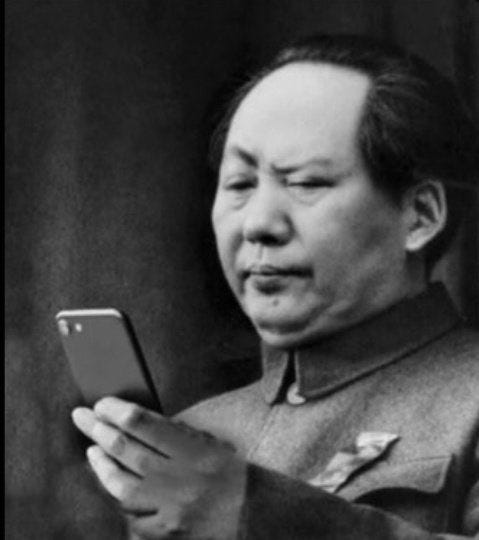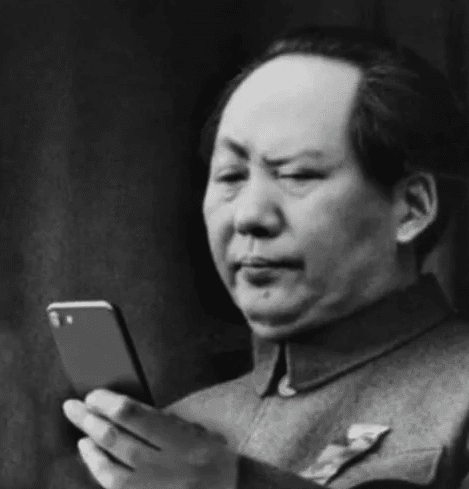Unless the U.S. government reverses course at the last minute, the U.S. ban of TikTok, & the latter’s subsequent shutdown of U.S. services appears imminent as of this writing. Consequently, U.S.-based TikTok users started to flock to a new Chinese social media app that offers comparable functionality to TikTok—“RedNote”—known in China as “小红书”. These self-proclaimed American “TikTok Refugees” made numerous comical “#TikTokRefugee” videos that entertained & delighted RedNote’s predominantly Chinese user base.
This migration is understandable & unsurprising, given the widespread opposition to the TikTok ban, especially from thousands of small businesses that have come to depend on TikTok social commerce for their livelihoods. RedNote is a short video app that has consistently tried to optimize itself for social commerce. The “Great American RedNote Migration of 2025” is also a symbolic act of defiance by American TikTok users, many of whom reject the U.S. official narrative that “TikTok must be banned on national security grounds, because the app could be a potential Chinese government espionage tool”. The act of defiance is coincidentally made all the more symbolic by the Chinese name of the app—“小红书” (Xiao Hong Shu)—which literally translates to “Little Red Book”, a reference to the widely published booklet of Chairman Mao’s most famous quotes; this book was ubiquitous during China’s Cultural Revolution. The symbolism of the “Little Red Book” will surely not sit well among those American elites who have more McCarthyist tendencies (e.g. Senator Tom Cotton).


Beyond its symbolic entertainment value, the “Great American RedNote Migration” holds far deeper historical significance at a civilizational level, and represents a milestone no less shocking than China’s recent test flight of its new J-36 fighter.
The (digital) American origin story & the (digital) “clash of civilizations”
The RedNote migration is the most “American” phenomenon witnessed by this author in his 30+ years of living in the U.S., since it fully manifests the “American spirit” in its original form. It demonstrates that the “American Spirit” is alive & well in some ways, despite popular opinions about U.S. cultural & civilizational decline. The USA was originally founded because people who felt marginalized & oppressed by their government left their countries of origin, migrated to a new land, & preserved their way of life. The “migration” to RedNote is the digital embodiment of that American “origin story”.
However, in the old story, what started out as a heroic odyssey quickly took a darker path. When the marginalized refugees of Europe migrated to the “New” World & established a new self identity as Americans, they tried & succeeded in remaking that world in their own image. But in the process of doing so, they also inflicted some of the worst crimes against humanity upon the indigenous people of that land. Obviously, the “indigenous” Chinese users of RedNote are at no risk of any such atrocities from this modern day digital “migration”. Nevertheless, if these “TikTok refugees” stay true to themselves as Americans, they will inevitably try to “remake RedNote in their own image”, by challenging the cyberspace behavioral & cultural norms of the predominantly Chinese app. In doing so, they will create a digital “clash of civilizations” that will test a Chinese enterprise’s ability to adapt to & accommodate the rapid influx of new user bases & cultural norms in a globalized cyber society.
Historically speaking, every time a foreign invader occupied Chinese territory, they’ve been assimilated & integrated into Chinese society. This trait is part of what made China the most resilient & sustainable civilization in human history. While TikTok refugees are obviously not “invaders” in the traditional sense of the word, it will be exciting to see how Chinese-style “assimilation” will occur over time in the virtual sphere, and whether Chinese digital service enterprises can truly adapt & thrive in this diverse environment.
The modern digital Cold War
Looking into more recent historical analogies, the RedNote migration is yet another confirmation of Niall Ferguson’s proclamation: “We’re All Soviets Now”. In popular U.S. narrations of the cold war, this author often recalled stories about how simple cultural products such as coca cola, Levi’s jeans, & rock’n’roll music were heavily restricted in the former USSR, but highly sought after by Soviet youth as status symbols of being “hip, progressive, iconoclastic, & modern”. These American cultural products showed glimpses of dynamism and prosperity of the West, which gradually led to disillusionment within Soviet society by comparison, and the eventual demise of the Soviet state itself.
“The Great American RedNote Migration” has strong analogous overtones to that Cold War phenomenon. American TikTok refugees are today’s “Soviet youth”. However, the impact of the RedNote migration could be far bigger and more rapid. When Americans begin to interact with ordinary Chinese on an unprecedented scale, they will begin to personally internalize the falsehood of two essential aspects of American self-perception:
1. Americans are the “exceptional people” who are, & will always be at the forefront of modernity & prosperity due to their innate national characteristics;
2. Americans are destined to spread these national characteristics worldwide, so as to spread modernity & prosperity to all other peoples of the globe.
When ordinary Americans see that it is possible to create just as much modernity and prosperity under an alternative governance system and culture—especially an “inferior” one that they’re taught to despise and fear—these deeply ingrained falsehoods will be fundamentally challenged. When TikTok refugees truly internalize that in many ways (e.g. infrastructure, digital transformation, safety, disaster management, low altitude economy, etc.) the U.S. has been outpaced, this challenge will be exponentially amplified with highly unpredictable results.
One might be inclined to think that Americans will become disillusioned like their Soviet predecessors. However, it is also within the realm of possibility that this would be a slow-motion “Sputnik moment” that spurs Americans into action to renew their own dynamism—the type of “Sputnik moment” that other Chinese “milestone products” such as the J-36, Huawei 5G networks, or the Jiuzhang quantum computer could never trigger, because those were far too distant & unrelatable to the ordinary American.
Will the U.S. establishment resort to ever more harsh tactics to undermine Chinese enterprises, in an effort to counter their inadvertent cultural & ideological influence on an increasingly disillusioned youth? Alternatively, will Americans be “shocked back into reality”, collectively start to fix the dysfunction caused by their elites, and in doing so, build a far more formidable competitor to China in a lengthy Sino-US Cold War? Either scenario will create unique challenges for China’s digital enterprises, government, and society as a whole.

